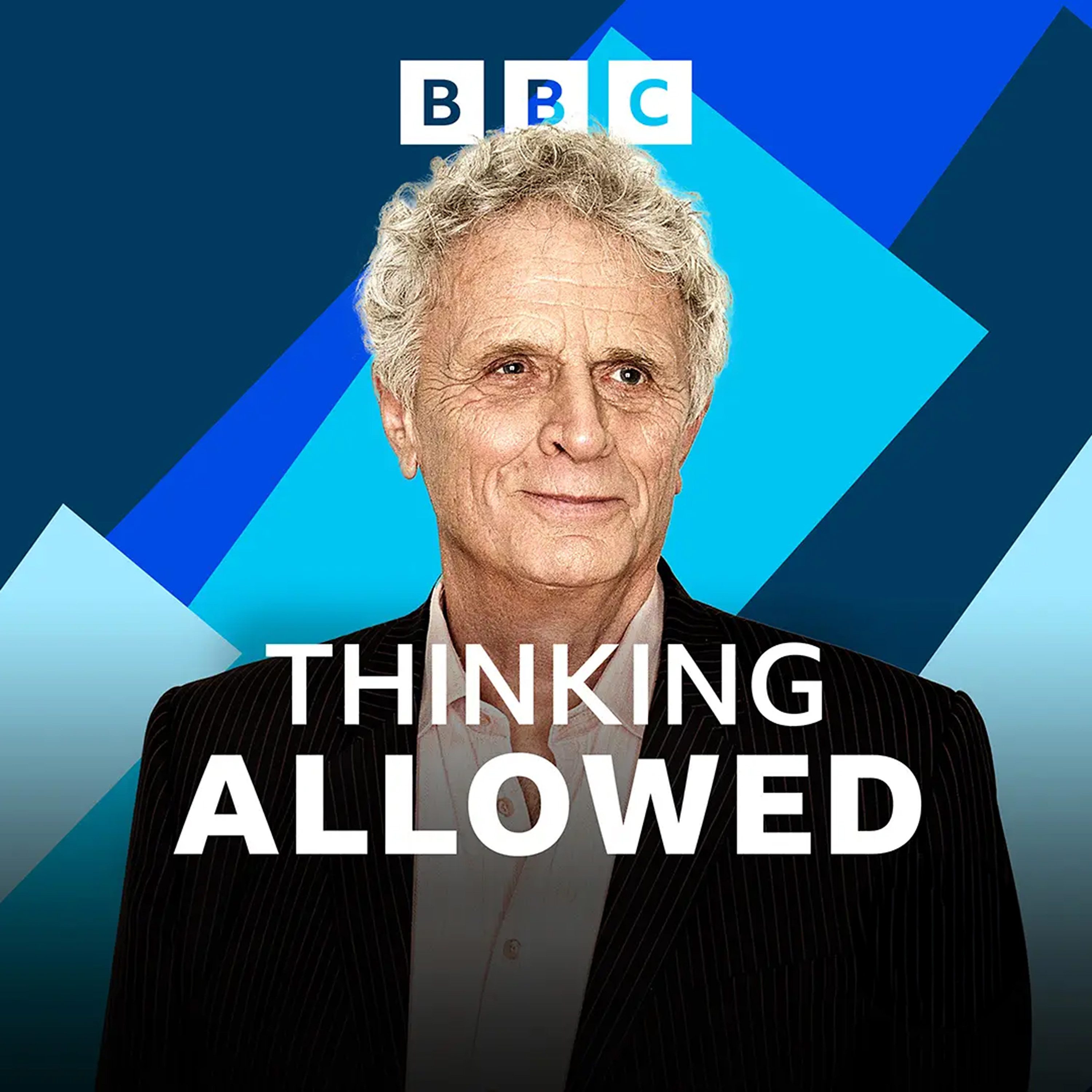

Thinking Allowed
BBC Radio 4
New research on how society works
Episodes
Mentioned books

Jul 15, 2025 • 28min
Dogs
In this insightful conversation, Chris Pearson, an Environmental History Professor and author, discusses how dogs transitioned from working companions to cherished pets, shaped by historical changes. Mariam Motamedi Fraser, an Honorary Research Fellow, challenges the idea that our bond with dogs is entirely natural, exploring societal implications and 'dog politics.' Together, they unravel the complex evolution of dogs in urban settings, the rise of pedigree culture, and advocate for a deeper understanding of canine well-being and individuality.

Jul 8, 2025 • 28min
Learning Disabilities
Laurie Taylor speaks with Simon Jarrett, a Research Fellow at Birkbeck, who dives deep into the history of learning disabilities. He sheds light on societal attitudes from the 1700s to today, revealing how language and stigma have evolved. Joined by Magdalena Mikulak, they discuss the troubling implications of labeling behaviors that challenge societal norms. Together, they highlight the intersection of intelligence, race, and marginalization, emphasizing the need for better understanding and integration of individuals with learning disabilities.

Jul 1, 2025 • 28min
The Irish in the UK
Louise Ryan, a Professor of Sociology, and Bronwen Walter, Emerita Professor of Irish Diaspora Studies, delve into the rich history of Irish nurses within the NHS, recounting their vital roles and personal stories amid cultural challenges. They discuss the impact of anti-Irish racism and explore how Irish migration has shaped identity and solidarity among immigrant groups in the UK. The conversation highlights the legacy of the Irish diaspora, focusing on their contributions and the evolving perceptions of their cultural identity over time.

13 snips
Jun 24, 2025 • 28min
Russian Propaganda
Nina Khrushcheva, a Professor of International Affairs at The New School and great granddaughter of Nikita Khrushchev, dives into the labyrinth of Russian propaganda under Putin. She discusses how Putin's regime has shifted towards aggressive nationalism and the troubling revival of Stalin's image, reflecting on history's impact on current narratives. Khrushcheva also explores the surprising popularity of Orwell's '1984' as a beacon of hope amidst oppression and the enduring power of literature as a form of resistance in authoritarian regimes.

Jun 17, 2025 • 28min
Death
Molly Conisbee, a Visiting Research Fellow at the Centre for Death and Society, shares her insights on the societal history of mortality, emphasizing the everyday experiences of death beyond royal narratives. She discusses historical burial practices and the impact of urbanization. Chao Fang, a Sociology lecturer, examines the concept of a 'good death' in China, contrasting it with Western ideas that prioritize individual choice. They explore the cultural significance of family roles in dying and grieving practices, shedding light on the evolving interpretations of death.

11 snips
Jun 10, 2025 • 28min
Objects and Stories
Seth Rockman, an Associate Professor of History at Brown University, explores the hidden histories of plantation goods that fueled the American economy, revealing how items like shoes crafted by Northern women were tied to slavery. Lea David, an Assistant Professor at University College Dublin, delves into the emotional gravitas of everyday objects from sites of tragedy, discussing their role in memorialization and human rights education. Together, they unveil the complex and often painful narratives embedded in these objects, challenging listeners to reconsider their significance.

Jun 3, 2025 • 28min
Solidarity
Jennifer Chudy, an Assistant Professor at Wellesley College, dives into the complexities of racial sympathy in American politics, questioning why some white individuals feel distress over racial inequality yet fail to act. Andrea Sangiovanni, a philosophy professor at King's College, examines the evolving nature of solidarity, distinguishing it from altruism and justice. Together, they explore the critical relationship between personal connections and collective action in today’s social justice movements, offering insights into turning sympathy into meaningful solidarity.

23 snips
Mar 25, 2025 • 29min
Motherhood
Helen Charman, a Fellow at Cambridge and author of "Mother State," delves into how motherhood intertwines with political history and activism. Caitlin Killian, a sociology professor, discusses the increasing pressures on mothers and the unfair standards applied compared to fathers. They explore the evolution of motherhood, the criminalization of mothers’ actions, and advocate for rebalancing parental responsibilities. The conversation sheds light on the challenges and transformations that shape maternal identities in today's society.

25 snips
Mar 18, 2025 • 28min
Smoking
Ivan Markovic, a lecturer at Durham University, explores the cultural significance of smoking in modern Britain, from its role in boosting morale during WWII to the 2007 public smoking ban. He questions whether smoking still holds a place in British culture. Meanwhile, Tricia Starks, a history professor at the University of Arkansas, discusses the paradox of the USSR being the first mass smoking society while opposing capitalist ideals. Their insights reveal fascinating historical and social dynamics shaping smoking habits in both Britain and the Soviet Union.

Mar 11, 2025 • 29min
Dress Culture
Fatima Rajina, a Senior Legacy in Action Research Fellow, discusses the evolving dress norms among British Bangladeshi Muslim men, particularly the thobe's role in shaping a universal Muslim identity. Teleica Kirkland, a Lecturer at the London College of Fashion, reflects on the Windrush generation's deliberate fashion choices as a means of asserting dignity in British society. Their dialogue uncovers the complexities of identity, respectability politics, and how clothing serves as both a cultural expression and a vehicle for unity amidst societal scrutiny.


